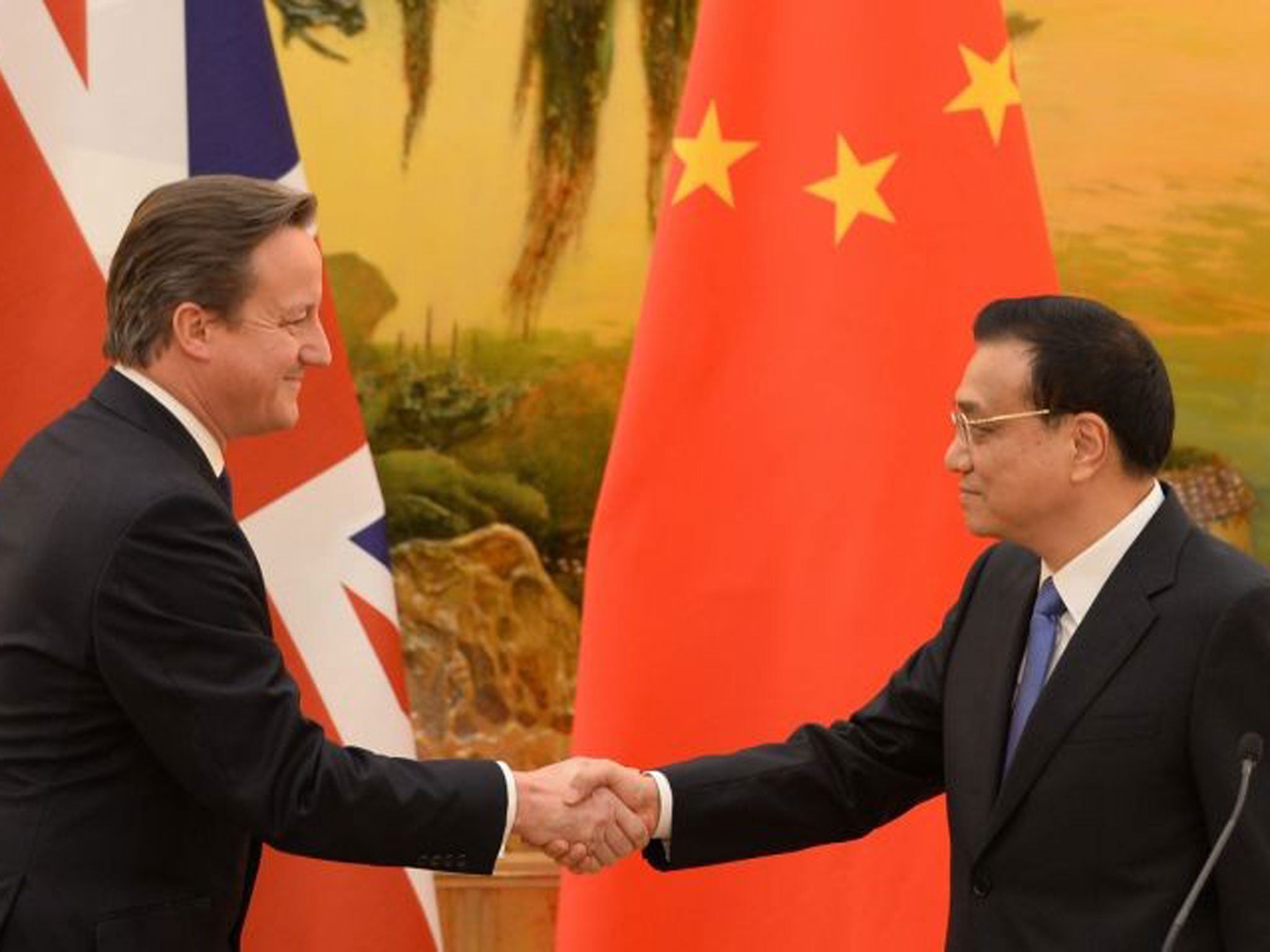Cameron-era approach to China harmed UK intelligence, MI6 boss warns
Nigel Inkster said Beijing has ‘industrial-scale cyber espionage operations directed against advanced Western countries’
Your support helps us to tell the story
From reproductive rights to climate change to Big Tech, The Independent is on the ground when the story is developing. Whether it's investigating the financials of Elon Musk's pro-Trump PAC or producing our latest documentary, 'The A Word', which shines a light on the American women fighting for reproductive rights, we know how important it is to parse out the facts from the messaging.
At such a critical moment in US history, we need reporters on the ground. Your donation allows us to keep sending journalists to speak to both sides of the story.
The Independent is trusted by Americans across the entire political spectrum. And unlike many other quality news outlets, we choose not to lock Americans out of our reporting and analysis with paywalls. We believe quality journalism should be available to everyone, paid for by those who can afford it.
Your support makes all the difference.David Cameron faces growing pressure over his attitude to China after the former deputy head of MI6 warned that British intelligence is unable to deal with escalating threats from Beijing.
Nigel Inkster said MI6 “clearly (has).. difficulties”, while China has “industrial-scale cyber espionage operations directed against advanced Western countries”.
And he pointed to the Cameron government’s attempts to develop friendlier relations with China.
“In 2015, the British government was talking about a ‘golden era’ of UK-China relations. Given that situation, it’s perhaps unsurprising that the security service isn’t where it might be,” he told the i newspaper.
In a bid to develop close economic ties with the Asian superpower, Lord Cameron even hosted a state visit for President Xi Jinping in 2015.
The Sunak government has been clear it is taking a tougher stance with China. In November the prime minister said Lord Cameron’s return as foreign secretary did not mean the return of his “golden era” approach.
Mr Inkster said the UK’s blind spot extends to “all the UK intelligence community”, which includes MI5 and GCHQ.
MI6 “clearly does have difficulties, in terms of language expertise and collective general historical and cultural awareness” when it comes to China, he said.
He added: “We’re seeing a significant increase in human intelligence collection operations, with the Chinese services essentially seeming to be operating under no political constraints – incentivised to take risks and to do whatever it takes to get the intelligence that is required.”
Sir Richard Moore, the head of MI6, told Politico in July that the intelligence agency now has more resources devoted to China than any other mission.
This “reflects … the crucial need to understand both the intent and capability of the Chinese government”, he said.

Mr Inkster warned that may not be enough to counter Beijing’s capabilities, however.
“I know that there is a big effort underway to remedy those deficiencies,” he said. “A lot of resources are now being put into getting the UK intelligence community in a better state… but it does take a certain amount of time.”
But he welcomed the new National Security Act, which he said would make it easier to prosecute Chinese spies, replacing “an Official Secrets Act that was derived from the First World War”.

Join our commenting forum
Join thought-provoking conversations, follow other Independent readers and see their replies
Comments